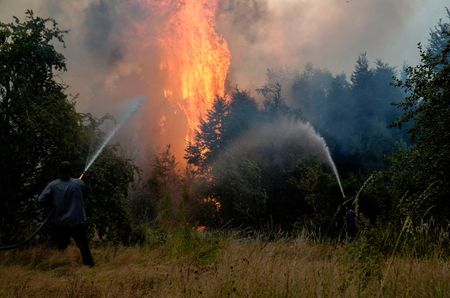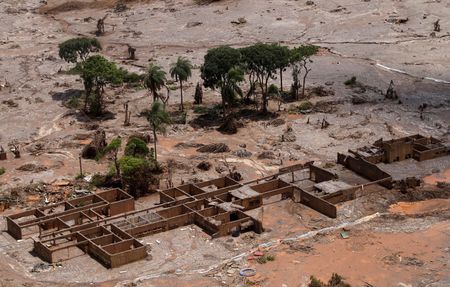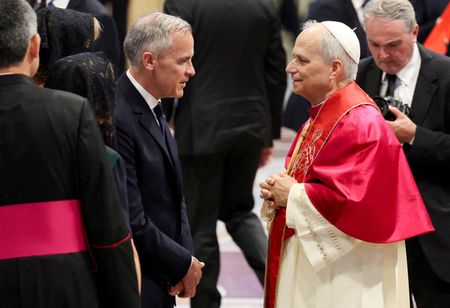By Kate Abnett and Valerie Volcovici
BRUSSELS/WASHINGTON (Reuters) – The European Union, Britain and climate-vulnerable developing countries have raised concerns about delays to the next global assessment of climate change, by the U.N.’s climate science panel, after the U.S. administration withdrew from the process.
The Intergovernmental Panel on Climate Change, the U.N. body which brings together climate scientists from nearly 200 countries to assess the planet’s health, will meet in Hangzhou, China, next week to plan its next global report.
“It will be vital that all working group contributions to the Seventh Assessment Report are prepared in time,” the EU’s climate chief, Wopke Hoekstra, and ministers from 17 countries including Britain, Germany, France, Spain, the Marshall Islands and Guatemala said in a joint statement, seen by Reuters on Friday.
“We owe it to everyone suffering the impacts of the climate crisis now, and to future generations, to make decisions about our planet’s future on the basis of the best evidence and knowledge available to us,” the statement said.
The Trump administration has halted the participation of U.S. scientists in the IPCC and will not attend its meeting in Hangzhou next week, Reuters reported on Thursday.
Officials familiar with the talks said the countries behind the statement were concerned the report would now not be completed in time to inform the next Paris Agreement “stocktake” in 2028, when nearly 200 countries will assess their progress towards curbing climate change and agree tougher measures to avoid escalating warming.
U.S. President Donald Trump last month also ordered the U.S. to withdraw again from the Paris climate agreement and has moved to reverse the Biden administration’s sweeping climate policies.
Meanwhile, billionaire Elon Musk is leading the administration’s attempt to rid the federal government of what he calls wasteful spending and slash the federal workforce, indiscriminately cutting funding for climate-related work and removing employees working on climate science, climate justice and clean energy.
A second statement, published on Friday by the Least Developed Countries, a group of 45 of the world’s most vulnerable nations, said there is no excuse for any delays in the process.
“Any backtracking on this process issue will be seen for what it is, politicization of science at the expense of vulnerable countries,” they said in a statement. “People in the developing world have nothing to gain from restricting access to freely available IPCC science.”
The last Paris Agreement “stocktake”, at the COP28 climate summit in 2023, saw nearly 200 countries agree to transition away from fossil fuels.
That deal was informed by the IPCC’s previous report, which set out the drastic changes humanity had caused to the planet’s climate and the sharp cuts to emissions needed to avoid further disasters.
(Reporting by Kate Abnett, Valerie Volcovici; editing by Giles Elgood)












